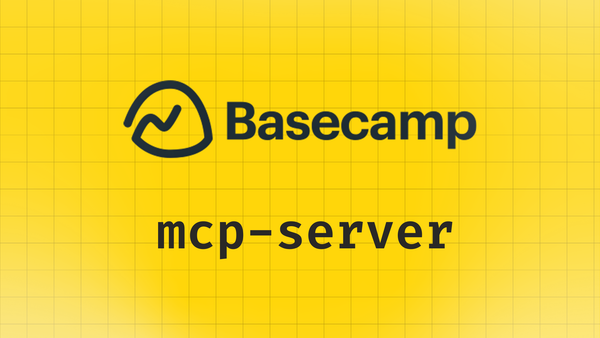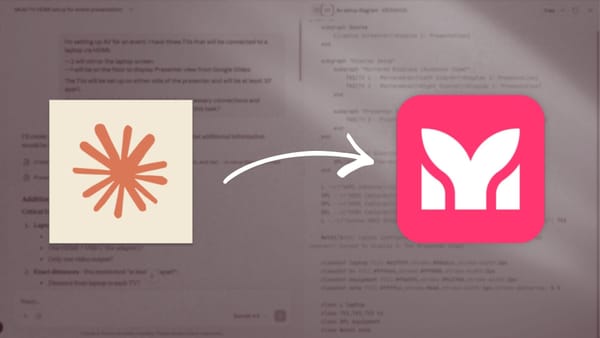On passing the PMP Exam
Earning project management street cred.

On Valentine's Day, I had a hot date with a 180 question / 230 minute Project Management Professional (PMP) exam from PMI. The test is face-melting, and I was quite relieved when the proctor handed me a printout indicating that I passed.
The whole process of studying for the PMP took about four months, but the journey goes back to about 2018, when my supervisor recommended that I take a look into PMI certifications. I didn't have the experience for the PMP at the time, so I opted for the Certified Associate in Project Management (CAPM) certification. I did a 35 hour, self-paced course and learned all about different project management processes, along with a long list of terminology.
Fast forward five years, and my CAPM was set to expire at the end of February 2025. I had two options: 1) complete some continuing eduction to keep the cert current or 2) apply for the PMP before my CAPM expired so it could satisfy the educational requirement. I opted for the latter and started studying around October of 2024, again with self-paced materials.
The PMP exam is absolutely the hardest exam I've ever taken, for several reasons:
- It's a long exam. Sitting down for nearly four hours of questions will wear you down. You have about 1 minute and 12 seconds to read each question, interpret what type of project you're in (software, construction, etc.), what type of approach is being used (waterfall, hybrid, agile, etc.) where you are in the process, and also determine the correct response. Decision fatigue starts to set in after the first hour.
- The exam tests your power of discernment. Good project management is about making good decisions based on the available information. The exam tests whether you can interpret correctly over and over and over.
- The PMP is industry-agnostic. The PMP preps you for all kinds of projects, from really long infrastructure projects (think building roads), to software projects that have a weekly shipping cadence. This requires you to have a good understanding of how to successfully manage all types of projects—not just projects in your niches.
- There are lots of ways to run a project. One of my favorite things about PMI is how they're cognizant of how projects are run differently based on the industry and deliverables.
- There are lots of tools and terms to know. The PMP isn't a test to cram for—you either really know the material or no amount of studying will make much of a difference.
- You have to understand people, business needs, and process. It's a test of your business acumen and emotional intelligence. Interpersonal issues often have the greatest potential to wreck a project, and a project manager has to know how to navigate them with poise and tact. At the same time, you need to understand how everything affects delivering business value. It's analytical, technical, psychological, and emotional—all in one.
How I prepared for the exam
In preparation for the exam, I used the PMI Study Hall Plus tool. It's offers a self-paced learning path aligned with all of the knowledge areas covered in the exam. I really enjoyed all of the videos, articles, and in-depth case studies because they showcased the truly global PMI community and showed the concepts in action.
I also listened to some podcasts about the PMP specifically, which helped me with test taking strategies. I only found a handful of PMP-related podcasts, and they were helpful for just getting my head around the exam. The Projectified Podcast from PMI is always a good resource for insights from the field.
During my studying process, I took two full-length mock exams in Study Hall. That helped me learn how to pace myself and how to push through decision fatigue. I also took a bunch of the mini practice exams (15 questions each) so I could be in the habit of deconstructing questions. Getting as many reps as possible is key.
What passing the exam means to me
Taking the time to study for and pass the exam means that I've recognized project management as one of the most important skills for me to learn, steward, and grow in throughout my career. It's one thing to have great chops as an individual contributor. It's another to know how to orchestrate the efforts of a team to produce great results.
When I first started preparing for the exam, I was pretty intimidated. I don't like failing, and I didn't want to spend a bunch of time and money preparing for an exam to not pass on the first time. And because the subject matter covered in the exam is both broad and deep, I questioned whether I had enough experience or whether I was ready for that step. In spite of my fears, I knew clearly from the Lord that it was the next step for me, so I did what He told me to.
Preparing for and passing the exam proved several things:
- When God tells you to do something, trust that He'll provide the means (time, insight, discernment, intellect, etc.) to make it happen.
- Project management is the right vein for me. I like working on technical and creative projects, as well as working with people. Project management gives me the opportunity to work on the types of projects I like and bring people together around a common goal.
- You're never done learning. Even though I passed the exam, there's still a lot that I don't know. I'm still learning things about project management, and I know that that will continue. Passing the exam is an entry point, not a destination.
- The more you know about project management, the easier it is to wrangle ambiguous work and collaborate with diverse stakeholders. Everyone has an opinion and everyone has feelings. Knowing how to apply good PM principles is the difference maker between producing dissappointing results or creating something that everyone's proud of.
I'm really thankful for my boss at SCAD, Christopher Scott, who directed me to check out the Project Management Institute many years ago, for all the great folks at Grace Church who allowed me to help implement new project management systems and processes (much of which gave me the experience required to apply for the exam), and for my wife, who supported many late nights of study and never wavered in her belief that I'd pass the first time.
What's next
The process of studying for the PMP paid off immediately, as it gave me tools and frameworks that I could apply to my current projects. And when I took my role as Marketing Project Manager at Midwest Roofing, I had the knowledge and experience I needed to immediately begin making a real contribution. I'm excited to go deeper into what I've learned. At some point, I'll probably join a local PMI chapter to grow my network.
For anyone who works on projects, I highly recommend checking out the resources and certifications from Project Management Institute. If you don't yet have the experience to sit for the PMP, definitely check out the CAPM—it's a great starting point. Also check out the Projectified podcast to hear from project managers from an array of industries. And if more perspective is helpful, feel free to reach out to me on LinkedIn.
Cover Photo: I took this photo with a Pentax Espio 24EW on a trip to Alaska with my dad in 2006. The camera was a simple point-and-shoot for 35mm film. This photo was at a station with dishes that NOAA used for weather forecasting. Those photos helped crystalize my love for photography.



